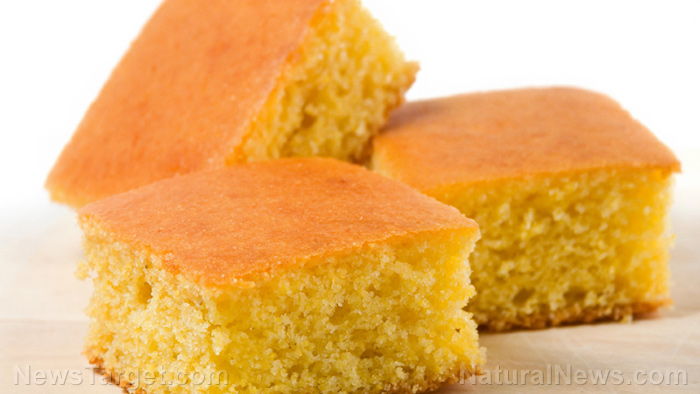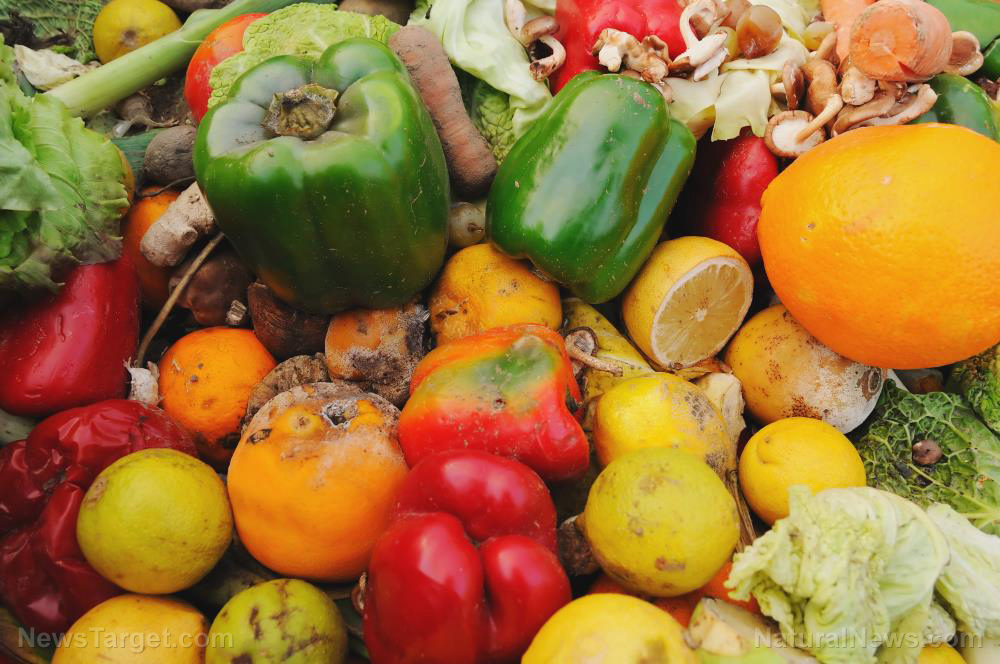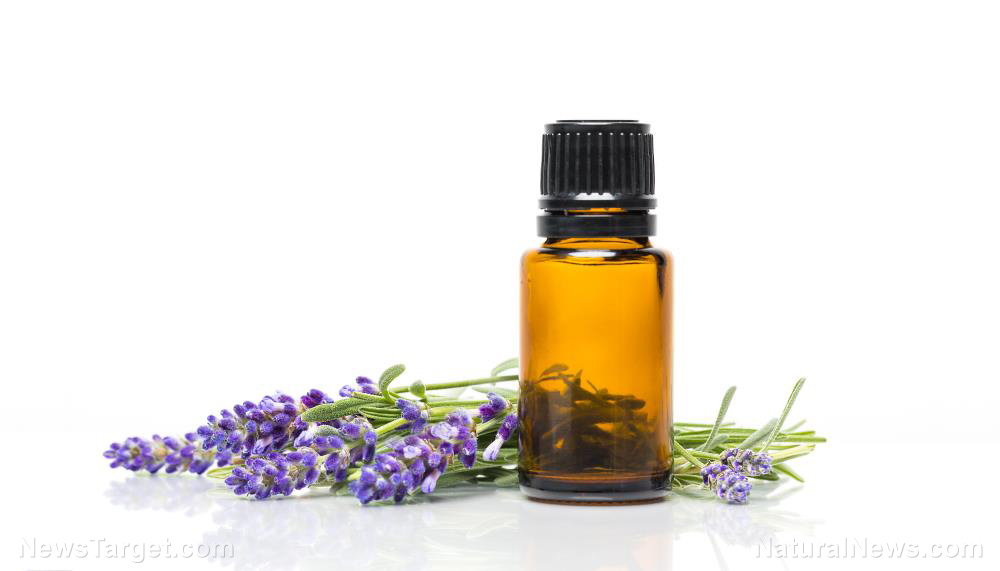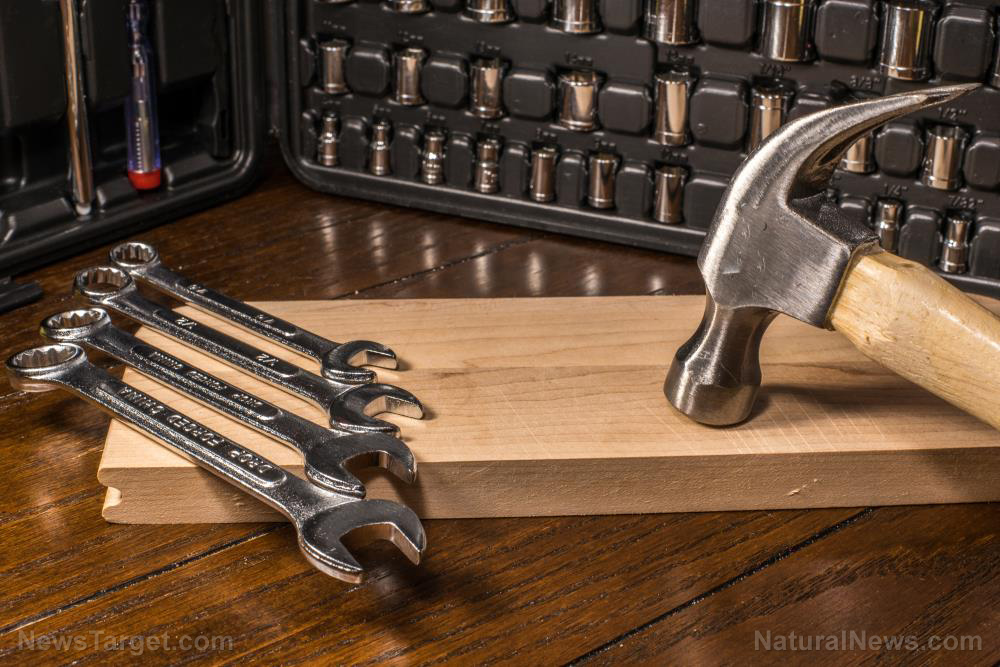Why and how to use diatomaceous earth for your body and home
07/22/2017 / By Frances Bloomfield

Made from the fossils of single-celled, ocean-dwelling plants, food-grade diatomaceous earth is an unusual but useful all-natural mineral. You may not have heard of this soft, white powder before, but it’s something you should definitely keep around in your closet. From soaking up unpleasant smells to polishing metal to supporting bone and joint health, this “miracle mineral” can do all that and more.
Diatomaceous earth for your body
Diatomaceous earth is composed largely of silica, a trace mineral responsible for this powder’s multitude of health benefits. These include:
- Supplement: If you want strong bones and joints, then diatomaceous earth is for you. The large concentrations of silica allow diatomaceous earth to serve as a supplement for the bones, joints, tendons and heart.
- Detoxifier: A teaspoon of diatomaceous earth mixed in with a cup of water is a great detoxifying agent, killing off any harmful parasites and viruses in the digestive tract. Moreover, diatomaceous earth is said to contain a potent chelation agent that absorbs all kinds of chemical toxins. (Related: Diatomaceous Earth: The Miracle Dirt?)
- Toothpaste: According to AskAPrepper.com, equal parts coconut oil and diatomaceous earth make for a good alternative to commercial toothpaste. Adding a pinch of peppermint essential oil will add a nice flavor.
- Skin and nail cleanser and protector: Thanks to the abrasive properties of diatomaceous earth, it can effectively clean the skin and teeth; consuming diatomaceous earth can strengthen the skin and nails.
- Deodorant: Looking for a natural, chemical-free deodorant? You can make your own by mixing together three parts cornstarch, two parts coconut oil, and one part diatomaceous earth
- Exfoliant and face mask: Adding a bit of water to diatomaceous earth will turn it into a thick paste that can remove dead skin cells and sebum.
Diatomaceous earth for your home
Did you know that diatomaceous earth isn’t just good for your body? There are numerous ways for you to use this powder around your home.
- Food storage: Any prepper worth their salt will have diatomaceous earth on hand for this purpose. Adding food-grade diatomaceous earth to grains will prevent them from drying and allow them to keep for a long time.
- Soil conditioner: Diatomaceous earth is good for soil because it helps the soil retain nutrients and moisture, as well as improve oxygenation.
- Insect and pest killer: If you’re struggling with a pest control problem, then diatomaceous earth is just what you need. Sprinkling it around your home will kill any lurking insects without harming your family or pets. Diatomaceous earth can also be added to your plants to keep slugs, beetles, and other garden pests at bay.
- Flea and tick remover: Rubbing or brushing diatomaceous earth into your pet’s fur will get rid of ticks ad fleas. Just be sure to keep it away from your pet’s eyes, as diatomaceous earth can be a painful eye irritant.
- Water filter: Diatomaceous earth can filter even the finest particle contaminants, making it an excellent water purifier.
- Abrasive cleaner: Remove grim form your pots, pans, and even your toilet bowl with a bit of diatomaceous earth.
- Absorbent agent and stain remover: Diatomaceous earth can be used to clean up water and oil spills since it can absorb 1.1 times its weight in fluids.
- Deodorizer: You can also use diatomaceous earth to sponge up bad smells, like those coming from garbage cans and kitty litter boxes.
- Chicken aid: Feeding diatomaceous earth to hens will make them less prone to infections and will allow them to lay eggs with harder shells and larger yolks. Spreading diatomaceous earth around chicken coops, on the other hand, will keep flies and odors under control.
You need not wait for a crisis to arise to have a pack of diatomaceous earth at the ready. It won’t hurt to invest in some diatomaceous earth as soon as possible. Doing so can free up some space in your cupboards and ensure that you’ll be better prepared for emergencies, big and small.
Visit Preparedness.news to read more on handy items to have in your home.
Sources include:
Tagged Under: diatomaceous earth, personal care, preparedness




















